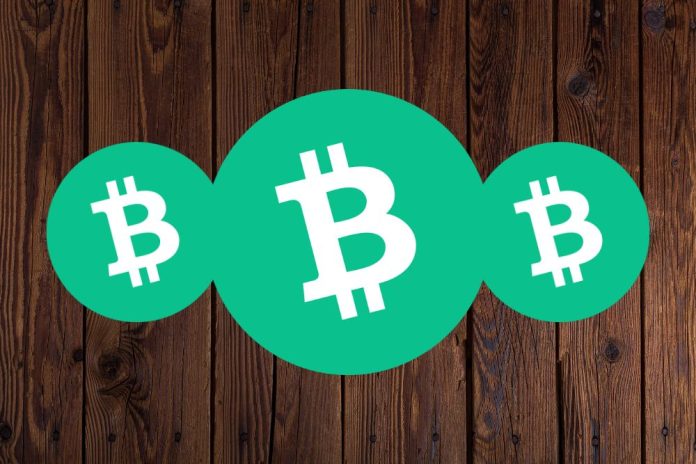Nodes in cryptocurrency networks serve as the primary custodians of data, forming the backbone that upholds decentralized protocols. Yet, far from the information we see on crypto transaction trackers, they also provide the central points of communication for developers looking to integrate their products into the blockchain.
Follow us as we delve into the significance of Bitcoin Cash nodes and innovative ways to leverage them in blockchain projects through the assistance of Web3 infrastructure providers.
Understanding Blockchain Nodes
Unlocking the potential of blockchain technology hinges on the utilization of blockchain nodes. From this perspective, peer-to-peer (P2P) protocols facilitate seamless data exchange on transactions and new blocks among participants within the network.
Nodes actively engage in consensus mechanisms, validating transactions, maintaining copies of confirmations, and contributing to the creation of new blocks in the chain.
Each boasts a comprehensive copy of the blockchain, granting users unfettered access to a transparent record of every operation conducted or stored on the network available via crypto transaction trackers. The integrity and reliability of data residing in the distributed ledger rest upon these computational entities.
Diverse Faces of Crypto Nodes
Before we jump into exploring the paths to leverage Bitcoin Cash nodes, let’s expose different node types within the blockchain ecosystem.
- The full node stands as a comprehensive repository, housing a duplicate of the entire ledger and the governing rules of the network;
- Opting for efficiency, pruned versions represent a streamlined alternative, preserving only the most recent blocks to conserve space and shed the burden of unnecessary historical data;
- In a departure from the exhaustive ledger storage, light nodes refrain from maintaining an independent ledger, prioritizing a nimble approach to data retrieval;
- Contrasting with pruned versions, archive nodes go all-in, hosting a complete copy of the blockchain. This divergence becomes apparent when considering the retention of historical data reflected in crypto transaction trackers;
- Operating in a league of their own, miners play a distinct role as they undertake the monumental task of unearthing the next block and broadcasting it across the blockchain.
While this classification paints a full picture of entities involved in the Bitcoin network, the same types apply to Bitcoin cash nodes.
One notable departure from Bitcoin is Bitcoin Cash’s adjustable block size, allowing for dynamic scalability in response to transaction volume. This adaptability is designed to prevent congestion during times of increased network activity, promoting smoother and more efficient operations.
How to run a Bitcoin Cash node?
Now that we’ve seen how crucial nodes are in the blockchain world, let’s look at how to run one.
Traditionally, establishing a connection to the blockchain necessitated initiating your network node, which technically is a straightforward process: download and install the Bitcoin Cash node software package, then allow it to synchronize with the broader network, fetching the whole set of data crypto users normally see via crypto transaction trackers.
Yet, this approach comes with considerations. Ensuring ample storage space, ideally a few terabytes, is essential, coupled with the consistent operation. Additionally, diligent attention to security measures is paramount.
For those who find the intricacies of running a node demanding, Web3 infrastructure providers step in as a solution, simplifying the entire process.
GetBlock: Your Gateway to Seamless Blockchain Integration Across 50+ Networks
Services like GetBlock prove indispensable for wallets, DeFi platforms, crypto transaction trackers, and dApps alike relying on Bitcoin Cash nodes. Notably, the breadth of supported blockchains is a key highlight, encompassing a spectrum of over 50 chains, from widely popular ones like BNB Chain, Ethereum, and Polygon to more niche options.
With a user-friendly interface granting access to over 50 networks, GetBlock guarantees secure, real-time transaction processing, effortless balance inquiries, and seamless retrieval of blockchain data.
Bitcoin Cash nodes by GetBlock
For those mindful of budgets, GetBlock’s shared nodes provide an affordable entry point. With 40,000 free daily requests, users can experiment with ease. Shared infrastructure users leverage a common API, making them ideal for developers looking for entry-level infrastructure while sharing resources with other users.
Experienced developers seeking precision can opt for dedicated Bitcoin Cash nodes. Tailor-made to meet specific requirements, the service empowers users with the autonomy to sculpt a flexible blockchain environment.
More to this, GetBlock goes beyond infrastructure, bringing user-friendly crypto transaction trackers. Available for free, these explorers empower users to delve deeper into the inner workings of decentralized systems.
Closing Thoughts
Understanding the nuances of Bitcoin cash nodes and decentralized networks’ structure, in general, is crucial for anyone navigating the ever-evolving landscape of blockchain technology.
Obtaining direct access to blockchains via Web3 infrastructure services is beneficial for both crypto holders preferring to query data directly from the blockchain rather than crypto transaction trackers and developers searching for maximized efficiency and minimized costs navigating the blockchain-based software development landscape.



